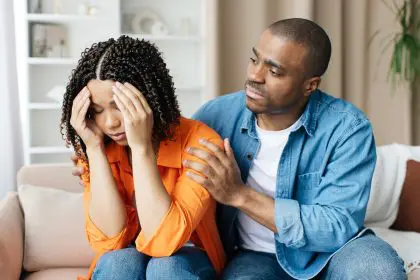In today’s world, appearance plays a significant role in social interactions and self-perception. Body shaming — especially among women — has become a prevalent issue, raising questions about why some attractive women engage in this behavior. Despite their own societal advantages, these individuals sometimes resort to shaming others based on their appearance. This complex behavior stems from a mix of psychological, social and cultural factors. By exploring these dynamics, we can gain insight into the reasons behind this phenomenon and how to address it constructively.
Understanding the motivation behind body shaming
Attractive women may feel the pressure to maintain their status within social circles. Society often places them on a pedestal, associating beauty with worth and success. As a result, they may internalize these expectations, leading to anxiety about their own appearance and position. In an effort to affirm their status, some might resort to body shaming their peers. This act can be seen as a defense mechanism — a way to deflect attention from their own insecurities by highlighting perceived flaws in others.
Despite their outward confidence, many attractive women experience insecurity about their own bodies. The constant scrutiny they face can lead to a distorted self-image. They may believe that their value is tied solely to their looks, causing them to view others as competitors. When they perceive a threat to their own desirability, they may lash out by body shaming peers to reaffirm their position. This behavior is not rooted in a desire to harm others but rather in a need to protect their own fragile self-esteem.
The influence of social dynamics
Social dynamics play a crucial role in the perpetuation of body shaming. In certain social circles, appearance is often used as a currency for acceptance and popularity. Attractive women, who may already hold a higher social standing due to their looks, might feel compelled to conform to these unspoken rules. Engaging in body shaming can be a way to fit in — aligning with group norms that prioritize physical appearance. By participating in this behavior, they can secure their place within the social hierarchy, even if it means hurting others in the process.
Peer pressure can also influence body shaming behavior. Within social groups, individuals may feel compelled to mimic the actions of others to gain approval. Attractive women are not immune to this pressure; in fact, they may experience it more intensely. If body shaming is a common practice within their circle, they might engage in it to avoid being ostracized. This behavior is often an attempt to conform and belong — rather than a reflection of their true character. It’s a coping mechanism to navigate the complex social landscape where appearance often dictates one’s worth.
The role of media and cultural standards
Media and cultural standards significantly impact how women perceive themselves and others. Society often equates attractiveness with slimness, flawless skin and specific body proportions. These unrealistic ideals are constantly reinforced through advertisements, movies and social media, creating a narrow definition of beauty. Attractive women — who may already feel the pressure to meet these standards — might internalize these messages. As a result, they may body shame others who don’t conform to these ideals — not necessarily out of malice — but because they themselves have been conditioned to believe in these narrow beauty norms.
Social media amplifies the pressure to maintain a certain image. Platforms like Instagram and TikTok often highlight curated, edited versions of reality, promoting an unrealistic standard of beauty. Attractive women — who receive validation through likes, comments and followers — may feel compelled to uphold this image. However, this environment can also breed insecurity and competition. In a bid to maintain their perceived superiority, they might resort to body shaming peers. This behavior is often a manifestation of the internal struggle to meet the ever-changing standards of online beauty.
The emotional impact of body shaming
Body shaming — regardless of its source — can have profound emotional effects on both the victim and the perpetrator. Women who are body shamed may experience feelings of worthlessness, depression and anxiety. This can lead to long-term mental health issues, affecting their self-esteem and confidence. On the other hand, those who engage in body shaming are not immune to emotional consequences. The act of belittling others often stems from their own insecurities and emotional turmoil. This cycle of negativity can leave them feeling isolated, misunderstood and trapped in a mindset that equates self-worth with physical appearance.
To break this cycle, it is essential to foster a culture of self-acceptance and kindness. Encouraging women to embrace their unique qualities — regardless of societal standards — can help diminish the need to compare and compete. Promoting open conversations about body image and the unrealistic expectations set by media can also pave the way for change. By addressing these issues, we can create an environment where women support rather than tear each other down, allowing everyone to feel valued for who they are rather than how they look.
Moving towards a culture of empathy
Creating a culture of empathy involves recognizing that body shaming is a reflection of broader societal issues. Attractive women who engage in this behavior are often products of a culture that prizes physical appearance above all else. By shifting the focus from outward appearance to inner qualities, we can redefine what it means to be truly attractive. Celebrating diverse body types and promoting body positivity can help reduce the stigma associated with not fitting into a specific mold. When women are encouraged to value themselves and others beyond physical attributes, the compulsion to body shame diminishes.
Positive role models play a vital role in this transformation. Women who use their influence to promote body positivity and self-acceptance can inspire others to do the same. By speaking out against body shaming and advocating for a more inclusive definition of beauty, they can challenge the status quo. This shift can empower women of all shapes and sizes to feel confident and comfortable in their own skin. When attractive women lead by example, they can break down the barriers that perpetuate body shaming, fostering a community where every woman feels valued and respected.
Fostering a supportive environment
Body shaming among women, including those considered attractive by societal standards, is a multifaceted issue rooted in insecurity, social dynamics and cultural pressures. It is a behavior that reflects the complexities of human interaction and the impact of societal expectations. By understanding the motivations behind body shaming, we can begin to address its root causes. Promoting a culture of empathy, self-acceptance and body positivity is crucial in creating a supportive environment where women uplift rather than criticize each other. When we embrace diversity in appearance and prioritize kindness over judgment, we can build a society that values individuals for who they are, not just how they look.
In the end, overcoming the urge to body shame requires a collective effort to change the narrative around beauty and self-worth. It’s about recognizing that everyone — regardless of appearance — deserves to feel confident and accepted. By fostering a community that celebrates differences and promotes self-love, we can move towards a future where body shaming becomes a relic of the past, replaced by a culture of support, respect and genuine appreciation for one another.
This story was created using AI technology.

















